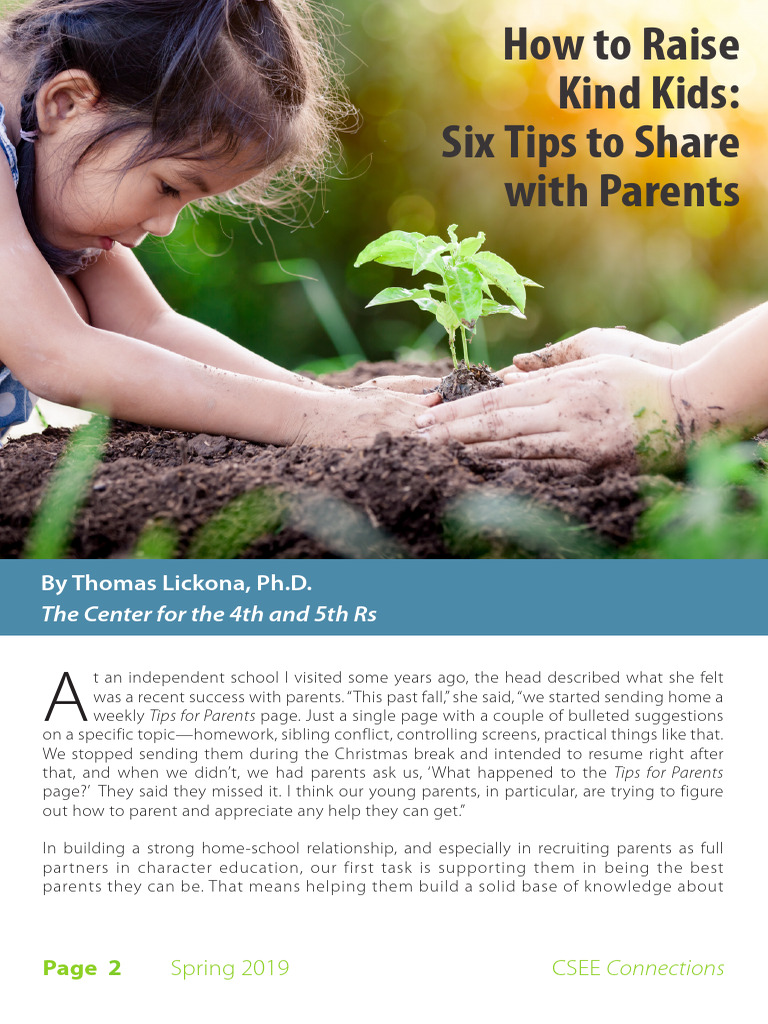Raising children imbued with kindness is not merely a parental aspiration; it is a profound commitment resonating through the dimensions of human civilization. The Baha’i teachings espouse principles that not only encourage the nurturing of benevolent behavior in children but also advocate for a holistic worldview that fosters the innate capacity for compassion. This article explores several key tenets of Baha’i philosophy and how they can be translated into actionable strategies for cultivating kindness in our progeny.
1. The Oneness of Humanity
A fundamental precept of Baha’i thought is the oneness of humanity. This concept urges individuals to recognize the intrinsic value of every person, regardless of their background. Engaging children in conversations about diversity can significantly enrich their understanding of global interdependence. When children learn to see others through this lens, they are more apt to exhibit empathy and kindness.
Practical Application: Introduce your child to multicultural literature or diverse communities. Encourage discussions about different cultures, traditions, and the common bonds that unite us. This can serve to instill a sense of global citizenship and an appreciation for the uniqueness of every individual.
2. Empowering Service to Others
The spiritual act of service is integral to the Baha’i faith. Teaching children the importance of aiding others can shift their perspectives from self-centeredness to altruism. Engaging in community service not only develops empathy but also fosters a sense of responsibility towards fellow beings.
Practical Application: Organize family volunteer days at local shelters, food banks, or community gardens. Let your children witness the tangible impact of their actions. This experience can augment their understanding of kindness not as an abstract value but as an active and vital part of life.
3. The Role of Consultation
Consultation, a practice highly emphasized in the Baha’i teachings, is an enriching methodology for problem-solving and decision-making. Encouraging children to participate in family discussions using this consultative approach can nurture not only their kindness but also their critical thinking skills. They learn to appreciate others’ viewpoints, fostering respectful discourse.
Practical Application: Create a family council where everyone, regardless of age, contributes ideas and opinions on matters ranging from daily chores to larger family decisions. The emphasis on consensus and mutual respect reinforces the value of each voice, cultivating a sense of belonging and kindness.
4. Nurturing Spiritual Qualities
The Baha’i teachings elucidate a myriad of virtues, such as love, compassion, and humility. Instilling these attributes in children can be a proactive endeavor that anticipates the complexities of adult life. Instilling spiritual qualities is not just about instruction; it involves embodying them through daily actions.
Practical Application: Create a “virtue of the week” program where your family focuses on a specific quality to embody, such as patience or generosity. Discuss the significance of the virtue openly, and encourage your children to share their experiences or struggles in upholding it throughout the week.
5. Fostering a Loving Environment
Creating a nurturing atmosphere is paramount. Love is the cornerstone of the Baha’i faith, and it is essential that children feel an abundance of affection and support within their family unit. This secure emotional foundation allows kindness to flourish naturally as children perceive it as a natural extension of familial love.
Practical Application: Regularly express love and appreciation for your children through both words and actions. Engage in activities that strengthen your familial bonds, such as family game nights or shared reading sessions. A cohesive family structure where affection is visibly present is conducive to developing kind-hearted individuals.
6. Teaching Conflict Resolution with Kindness
In a world where conflict is inevitable, equipping children with the tools to resolve disagreements amicably is vital. The Baha’i teachings encourage individuals to transcend personal grievances and seek mutual understanding. This perspective can be introduced to children in constructive ways.
Practical Application: When conflicts arise, whether at home or in social situations, guide children through a conflict resolution framework focused on empathy and active listening. Role-play scenarios can also be beneficial. Children learn how to navigate disagreements with a mindset aimed at reconciliation rather than confrontation.
7. Encouraging Emotional Intelligence
A critical aspect of kindness is emotional intelligence—the ability to recognize and empathize with the feelings of others. By teaching children to articulate their own emotions and to be attuned to the emotions of those around them, we enhance their capacity for kindness.
Practical Application: Use storytelling or role-playing to help children identify emotions, both their own and others’. Ask them to express how characters in a story may feel and what compassionate actions could be taken in response. This can build a reservoir of empathy that they can draw upon in real-life interactions.
Conclusion
Raising kind children is a multifaceted endeavor that requires intentionality and thoughtfulness. By weaving Baha’i principles into daily practices, parents can create a nurturing environment where kindness can flourish. The teachings of Baha’u’llah extend beyond religious confines; they offer a universal framework for parenting, promoting a compassionate future generation. Whether through education about humanity’s interconnectedness, embracing service, or fostering emotional intelligence, the journey to raising kind children is one paved with love, understanding, and hope. Each step in cultivating kindness not only enriches the lives of our children but also fortifies the social fabric of the wider community.
